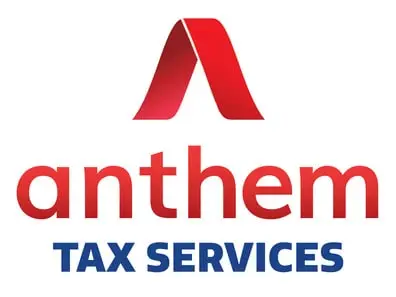
If you’ve recently had your IRS payment plan rejected, it is only natural to feel a little lost and worried. After all, nobody wants to fall out of favor with the Internal Revenue Service as it could lead to ongoing tax problems.
This quick guide to rejected IRS payment plans and the next available steps will answer your key questions, including;
- Why was the proposed IRS payment plan rejected?
- What options are available to clear my outstanding balance?
- How can I prevent further problems with my IRS payment plans?
Why would an IRS payment plan get rejected?
While U.S. taxpayers are ordinarily expected to pay their tax liabilities in one lump sum, and the deadline for 2023 was set to April 18th. However, the IRS does offer the opportunity to repay the monies owed via an agreed repayment plan.
Given the current economic climate, a larger percentage of America’s tax-paying population (which covers 60% of households) may find themselves requiring a repayment plan due to financial difficulties. While repayment plans are designed to provide a safety net to U.S. taxpayers, the IRS will commonly only accept mutually beneficial terms.
In some cases, the IRS payment plan is automatically accepted if the debt is below a certain level. For larger or more complex debts, the IRS will review the proposed arrangement. If you’ve seen your IRS payment plan rejected, it could be due to;
Owe back taxes?
Our tax relief experts can help keep the IRS out of your life
Previous defaults
If you have previously defaulted on IRS payments, it will be harder to encourage the IRS to accept your new repayment plan proposal. Frankly, you are seen as a larger risk than first-time applicants and individuals that have a positive history of making IRS repayments.
It does not mean that IRS payment plans are off-limits, but you should be prepared to receive a rejection.
Low monthly repayments
The IRS may accept that you need to settle your tax debt over the coming months as you are unable to immediately clear it. Still, they will expect you to satisfy your obligations at the earliest realistic opportunity, especially if you have the funds to make a large down payment.
This could be linked to cash or liquidatable assets and assets that can be borrowed against. Likewise, if the low payment means it will take years to pay the debt, the IRS will likely reject it. Not least because further tax payments will be needed this time next year.
The CESD expiration is approaching
The collection statute expiration date (CESD) is another reason why you may see your IRS payment plan rejected. Debts that fall under this category will be written off by the IRS. So, while they often accept long-term repayment plans, they won’t let the CESD occur.
So, if the CESD is approaching, it is very likely that the IRS will demand that you clear the debt far sooner than you initially proposed.
Providing false information
When making an IRS payment plan application, it is imperative that you disclose as much financial information as requested. Likewise, it must be accurate. Withdrawing information or misleading the IRS on your application will lead to application delays and subsequent rejections.
This is partly due to mathematical errors, but also due to the fact that you will now be seen as a greater liability.
What to do after an IRS payment plan rejection
If your proposed IRS payment plan has been rejected, it may feel like you’re out of options. In reality, though, there are several options still at your disposal. So, there is no need to wave the white flag. The main options are;
Appeal
Firstly, you may want to appeal the decision. If you can explain why you need the payment plan and why you have proposed a set monthly repayment figure. You must do this via the Collection Appeals Request within 30 days of receiving your rejection.
When your appeal shows a genuine desire to clear the debt in a mutually beneficial way, it may be possible to reverse the decision. Our tax experts can help you prepare the appeal.
Negotiate
The fact that your initial proposal was rejected doesn’t necessarily mean that the door is shut. It may be possible to negotiate your way to a different payment plan by suggesting an increased monthly payment that is still within your budget.
This approach shows a willingness and desire to satisfy your tax obligations while clearing them sooner makes it a better deal for the IRS. if you can’t increase the monthly fee, a bigger down payment may help.
Mitigate
If the above options are rejected and you cannot make the full payment now, there are other avenues you can pursue. Firstly, though, you must resist any temptation to take out a loan for paying tax purposes.
Available avenues include filing for bankruptcy or asking to be defined as Currently Not Collectible. Given that these are significant moves, you should always consult an expert first.
Get Tax Relief with Anthem Tax Services
While an IRS repayment plan may save the day today, it’s not something that you want to get into the habit of needing. Not least because you will often incur interest charges and fines. Besides, financial worries are a great source of stress. Getting your finances back under control will work wonders for your quality of life.
If you need IRS tax relief, help managing your debt and ongoing financial requirements, our experts are ready to assist you. Get in touch to learn more now.
If you’ve recently had your IRS payment plan rejected, it is only natural to feel a little lost and worried. After all, nobody wants to fall out of favor with the Internal Revenue Service as it could lead to ongoing tax problems.
This quick guide to rejected IRS payment plans and the next available steps will answer your key questions, including;
- Why was the proposed IRS payment plan rejected?
- What options are available to clear my outstanding balance?
- How can I prevent further problems with my IRS payment plans?
Why would an IRS payment plan get rejected?
While U.S. taxpayers are ordinarily expected to pay their tax liabilities in one lump sum, and the deadline for 2023 was set to April 18th. However, the IRS does offer the opportunity to repay the monies owed via an agreed repayment plan.
Given the current economic climate, a larger percentage of America’s tax-paying population (which covers 60% of households) may find themselves requiring a repayment plan due to financial difficulties. While repayment plans are designed to provide a safety net to U.S. taxpayers, the IRS will commonly only accept mutually beneficial terms.
In some cases, the IRS payment plan is automatically accepted if the debt is below a certain level. For larger or more complex debts, the IRS will review the proposed arrangement. If you’ve seen your IRS payment plan rejected, it could be due to;

Owe Back Taxes?
Our tax relief experts are only one phone call or form submission away…
Previous defaults
If you have previously defaulted on IRS payments, it will be harder to encourage the IRS to accept your new repayment plan proposal. Frankly, you are seen as a larger risk than first-time applicants and individuals that have a positive history of making IRS repayments.
It does not mean that IRS payment plans are off-limits, but you should be prepared to receive a rejection.
Low monthly repayments
The IRS may accept that you need to settle your tax debt over the coming months as you are unable to immediately clear it. Still, they will expect you to satisfy your obligations at the earliest realistic opportunity, especially if you have the funds to make a large down payment.
This could be linked to cash or liquidatable assets and assets that can be borrowed against. Likewise, if the low payment means it will take years to pay the debt, the IRS will likely reject it. Not least because further tax payments will be needed this time next year.
The CESD expiration is approaching
The collection statute expiration date (CESD) is another reason why you may see your IRS payment plan rejected. Debts that fall under this category will be written off by the IRS. So, while they often accept long-term repayment plans, they won’t let the CESD occur.
So, if the CESD is approaching, it is very likely that the IRS will demand that you clear the debt far sooner than you initially proposed.
Providing false information
When making an IRS payment plan application, it is imperative that you disclose as much financial information as requested. Likewise, it must be accurate. Withdrawing information or misleading the IRS on your application will lead to application delays and subsequent rejections.
This is partly due to mathematical errors, but also due to the fact that you will now be seen as a greater liability.
What to do after an IRS payment plan rejection
If your proposed IRS payment plan has been rejected, it may feel like you’re out of options. In reality, though, there are several options still at your disposal. So, there is no need to wave the white flag. The main options are;
Appeal
Firstly, you may want to appeal the decision. If you can explain why you need the payment plan and why you have proposed a set monthly repayment figure. You must do this via the Collection Appeals Request within 30 days of receiving your rejection.
When your appeal shows a genuine desire to clear the debt in a mutually beneficial way, it may be possible to reverse the decision. Our tax experts can help you prepare the appeal.
Negotiate
The fact that your initial proposal was rejected doesn’t necessarily mean that the door is shut. It may be possible to negotiate your way to a different payment plan by suggesting an increased monthly payment that is still within your budget.
This approach shows a willingness and desire to satisfy your tax obligations while clearing them sooner makes it a better deal for the IRS. if you can’t increase the monthly fee, a bigger down payment may help.
Mitigate
If the above options are rejected and you cannot make the full payment now, there are other avenues you can pursue. Firstly, though, you must resist any temptation to take out a loan for paying tax purposes.
Available avenues include filing for bankruptcy or asking to be defined as Currently Not Collectible. Given that these are significant moves, you should always consult an expert first.
Get Tax Relief with Anthem Tax Services
While an IRS repayment plan may save the day today, it’s not something that you want to get into the habit of needing. Not least because you will often incur interest charges and fines. Besides, financial worries are a great source of stress. Getting your finances back under control will work wonders for your quality of life.
If you need IRS tax relief, help managing your debt and ongoing financial requirements, our experts are ready to assist you. Get in touch to learn more now.


